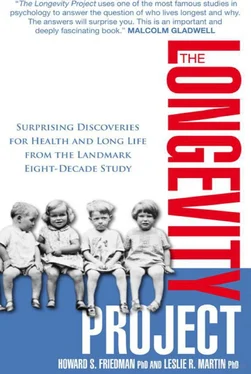1 2 3 4 5 6 7 8 9
3. I pay attention to details.
1 2 3 4 5 6 7 8 9
4. When I talk on the telephone, my feelings and emotions come through loud and clear.
1 2 3 4 5 6 7 8 9
5. I am always prepared.
1 2 3 4 5 6 7 8 9
6. Friends often come to me to tell me their problems and seek my advice.
1 2 3 4 5 6 7 8 9
7. I follow a schedule.
1 2 3 4 5 6 7 8 9
8. I continue until everything is perfect.
1 2 3 4 5 6 7 8 9
9. Friends tell me that I should be an actor.
1 2 3 4 5 6 7 8 9
10. I make plans and stick to them.
1 2 3 4 5 6 7 8 9
11. I sometimes forget to put things back in their proper place.
1 2 3 4 5 6 7 8 9
12. I am excellent in games like charades, where performance and communication are important.
1 2 3 4 5 6 7 8 9
13. I am often mistaken for being younger than my age.
1 2 3 4 5 6 7 8 9
14. At meetings, barbecues, and other gatherings, I am often the center of attention.
1 2 3 4 5 6 7 8 9
15. In conversations with people I like, I often demonstrate my affection by hugging or touching them.
1 2 3 4 5 6 7 8 9
To compute your total score, add the numbers you chose for items 1, 2, 4, 6, 9, 12, 14, and 15. (Disregard the other questions.) Your score should be between 8 and 72. An average score is in the 40s. A score below 36 puts you in the bottom 25 percent. A score above 50 puts you in the upper 25 percent, and a score above 58 is in the top 5 percent.
This latter scale is one of our measures of affective (emotionally motivated) communication—how well one sends his or her feelings to others. People high on this dimension are usually excellent in sales and persuasion. Many of the Terman subjects with these characteristics went on to be leaders in their fields. Because of their enthusiasm, emotional connectedness, and social skills, individuals scoring high on this dimension have an inherent tendency to be healthy, but here again, it can lead to substantial trouble and unhealthy behavior if they are charming their way into risky situations or overindulgent crowds of hedonistic friends. Nevertheless, many individuals strong on affective communication have the emotional skills to allow them to enter very healthy long-term paths, if they choose wisely.
Why Ask Who Lives Longest
Although our studies look at health, aging, happiness, and other signs of well-being, we always ask who lives longest. Why? We start with analyses of longevity because length of life is the single best measure of health. When public health agencies want to assess the overall health of a given country or state, they always start with average life expectancy—for good reason. There are lots of arguments about how to measure quality of life and wellness, but if you are dead, we can be quite sure that you have an extremely low quality of life. And, as noted, if you are on a path to a very long life, you are usually living a very healthy life.
We also wanted full details about causes of death—accidents, cancer, heart disease, and so on. So after we painstakingly obtained from state bureaus the death certificates for all the deceased participants, a certified nosologist—a specialist in classifying disease—coded them for underlying cause of death. Dr. Michael Criqui, an expert on cause of death and a physician-epidemiologist, was a key contributor, who also brought an emphasis on healthy behaviors to our studies. Whereas most research on personality and health had previously focused on stress and internal psychological conflict, Mike kept turning our attention back to patterns of healthy and unhealthy behaviors; it was such patterns across time that ultimately proved essential to understanding long life.
What It Means for You: Guideposts to Health and Long Life
The surprising news here is that sociability, generally speaking, isn’t as health protective as people think. For parents of shy children or for adults who have always worried whether they should get out and be more interactive, this is good news. Being a “people person” can have its benefits, but those who rank high on sociability often find themselves in environments that encourage unhealthy behaviors—and they join in the dangers of the moment.
To enjoy the perks of a sociable nature while minimizing the risks, our studies suggest being selective about whom you socialize with. As we will see in some detail, those study participants who chose wisely reaped long-term health benefits. Further, many of the more introverted children in our study grew up to take on stable jobs and develop steady friendships, which were just as valuable for health and long life. So if you’re socially reluctant and you’re okay with that—so are we.
What if you want to become less shy and build up a network of healthy friends? Assess yourself on our scale of affective communication, and then approach this challenge by going out and talking to one more additional person each week, paying special attention to the emotional signals you send to others. Looking back over the statements in the second (emotional sociability) self-assessment above, you will see that they hit on nonverbal communication—physical touch, body movement, and expression of feeling through one’s voice. Incorporating these elements is important—consider the different reactions you might get when you go out to socialize but you do not communicate emotionally (e.g., by sitting stiffly, making little eye contact, speaking in a monotone) versus when you do communicate well (e.g., by sitting with a relaxed posture, making eye contact, speaking with varying inflections that convey your interest in a subject, showing interest by nodding, and so on). The positive responses you are likely to receive will encourage you to persist in your efforts—our studies show that you will definitely get better with practice, even after a rough start. Socializing is only half the battle; being the type of person that someone else wants to socialize with is the other half.
While sociability by itself turned out not to be the reason some lived longer and others died sooner, this does not mean that social relations are unimportant to health. On the contrary, social ties emerged as critically important, even though individual sociability is not the key. For example, the Terman women outlived the Terman men for a variety of reasons, but especially social reasons, including differing social ties following divorce. As we will see, the real social reasons for long-term health were eye-opening and not what we expected.
CHAPTER 4
Happiness and Health?
A Cheery Conundrum
In 1922, the parents of the newly enrolled Terman participants were asked to rate their children on how cheerful and optimistic they were, and on their sense of humor. Some were jokesters like Paul, who loved to walk on stilts, roll hoops, and play pom-pom pull away (a game of tag). Others, like Emma, were more mature and serious. Emma loved skating, dancing, and dominoes, but no one would describe her as especially cheerful. The question in our minds, of course, was: Who lived longer, the serious or the cheery?
Many people in our culture peddle the idea that happiness, optimism, and good cheer are the secrets to good health. If true, then if you became ill, you could adopt a positive attitude and recover. It may even help us justify a little too much fun: “Why, dear, I know I am partying heartily tonight, but I need to reduce my stress and maintain my health!” Some scientists have likewise suggested that you can laugh your way to good health. Well, we discovered that happiness and laughter are important, but not for the reasons you might think.
When we looked across the decades at the lives of Paul, Emma, and the other Terman children to see who lived the longest, we found one of the biggest bombshells of our entire project: cheerful and optimistic children were less likely to live to an old age than their more staid and sober counterparts!
Читать дальше











